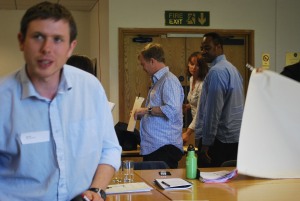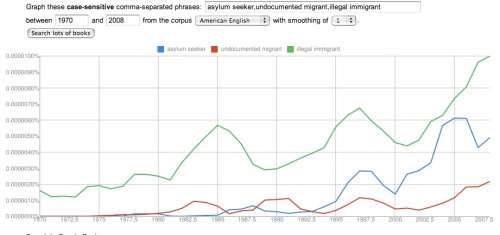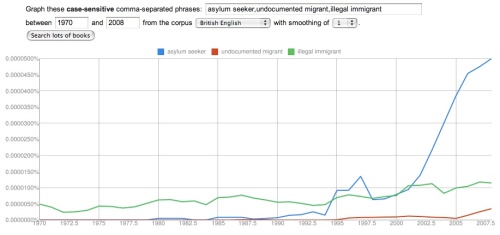Our ESRC-funded research project examines the challenges facing asylum seeker support organisations in the UK and US and some of their responses to these. The research is divided into two parts: the first, survey based, part examines the challenges and the second part, based on interviews, explores some of the actual and potential responses. We are now in a position to report on the first stage of our research, based upon around 50 detailed survey responses, roughly equally distributed between the UK and US. These are some of the most common challenges facing asylum support organisations that were raised in the survey:
1. A difficult funding climate.
This is the primary concern of our sample, and related not just to reductions in finds, but also the piecemeal nature of a lot of funding in the sector. Broader changes in the political climate add to a mood of resigned pessimism on this issue among some respondents as well as some very determined and creative approaches to fund-raising among others.
2. The disconnection between asylum seekers and support communities in time and space.
There is great concern among our respondents that asylum seekers are often transferred from one location to another or placed in remote locations either within or outside detention. This leads to concerns that asylum seekers are disconnected from legal, spiritual and social communities of support, largely as a result of what we term the ‘spatial churning’ of asylum applicants as they move through administrative systems and procedures.
3. Difficulties in accessing legal representation and aid and inconsistencies in immigration decisions as well as distressing variability in the behaviour of judges and immigration officers.
A number of factors combine to make the legal landscape very uncertain for asylum seekers and the organisations that support them. These include the tight time limits within which asylum seekers must apply for asylum after entering the country, the absence, reduction, and regulation of funding for legal aid, the often unpredictable nature of immigration judges’ actions and decisions and a lack of transparency in the legal system they encounter.
4. The emotional strain of working with large numbers of vulnerable and often traumatised people.
This is a consistent concern raised by respondents about advocacy and support work in the asylum sector; this is especially the case for those working with detained immigrants. It points towards the continuing and pressing need to ‘support the supporters’. A number of organisations offer tips on what they do and suggestions for developing and improving these initiatives.
5. The disconnection of asylum support groups from networks of other support groups.
Our respondents experience a dilemma. Often the time and resources devoted to staying afloat in the social media landscape comes at the expense of managing the ongoing work of asylum support or handling urgent issues. Rapid developments in communication technologies are a mixed blessing in the sector, where they do facilitate improved communications but also demand that organisations find capacity to invest in new technologies or risk missing out on important sources of information.
6. Tensions between long-term strategic goals and immediate issues
Making decisions about how to allocate resources across reactive and strategic priorities is a difficult issue for a number of our respondents. Coupled with funding cuts, this seems to push organisations to narrow their focus, hone the range of services they can offer, and sometimes limits networking opportunities. Our respondents identify some of the benefits and costs involved with this.
7. A persistently ill-informed or hostile media (and consequently public) attitude towards asylum.
The media – and especially elements of the written tabloid press – were often singled out as making life difficult for asylum support organisations. Respondents are very protective of asylum seekers and, in general, have well-thought out strategies and protocols in handling media inquiries. Interestingly, some British respondents –where media coverage is generally notoriously hostile towards asylum seekers – wonder whether any coverage is better than no coverage as interest in the asylum ‘issue’ has waned in recent years.
What’s next?
Our team is now in the process of interviewing representatives from a wide range of asylum support organisations in order to collect and share ideas about how to respond to these challenges across the sector. We are asking about what has worked for groups, and what might work going forward.
If you would like to add anything to the list of challenges above, then simply take our survey and fill in your opinion. Alternatively, we invite your comments on this page.
If you would like to take part in an interview for this research in order to discuss the best possible responses to these challenges, please contact Dr. Ceri Oeppen (UK-based) or Dr. Deirdre Conlon (US-based) to arrange an interview.
We have a dissemination event to discuss our findings in detail on September 23rd in London at the The Resource Centre, The Resource Centre, 356 Holloway Road, London, N7 6PA http://www.theresourcecentre.org.uk/index.php from 10.30am to 4pm. All are welcome but please book with Dr. Ceri Oeppen as places are limited.
We will also be publishing a report with all our research findings in it in December 2011.






